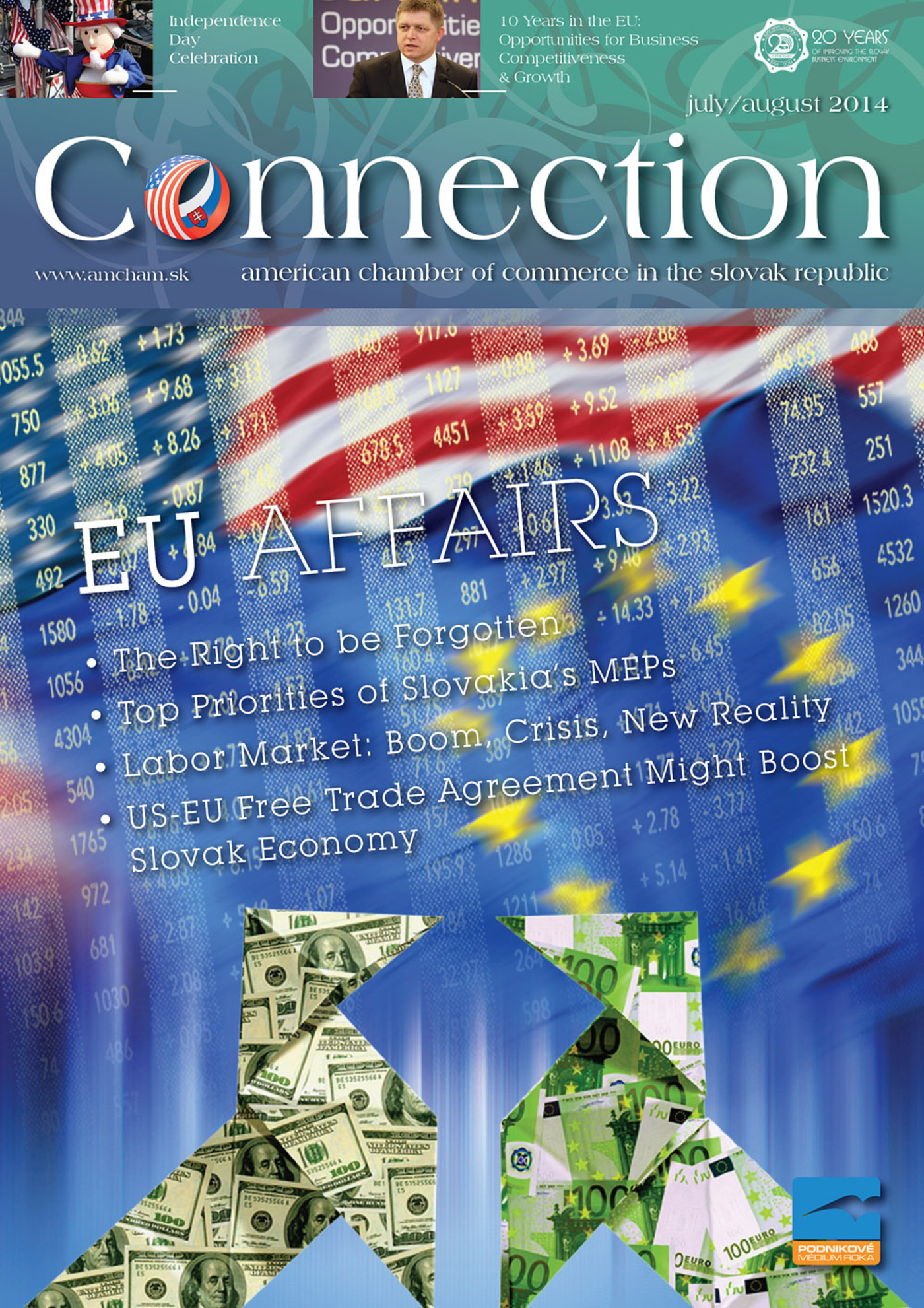International selection
If you plan to establish a new business, you have the opportunity to check regulatory issues and administrative burdens online, not only among the EU28 countries, but also worldwide. Using the World Bank ranking you may discover that is not as easy as you probably thought. And in Slovakia, it is getting worse. Currently there are 107 economies that enable you to start your business in an easier way than is possible in Slovakia. Another look at the same World Bank ranking will show you that you have to fight almost double the amount of bureaucracy compared to other OECD countries if you really want to trade globally.
European TOP 10 chart
Since the European Commission introduced in 2008 the most complex agenda so far to support entrepreneurship and SMEs in Europe, called “Small Business Act” (SBA), it is possible to periodically watch Slovak progress compared with other EU countries. SBA is formulated as a set of 10 principles, covering particular challenges and opportunities related to “Doing Business in the EU”, especially from the SMEs point of view, including topics such as enhancing entrepreneurship, getting a second chance in doing business, responsive administration, state aid and public procurement, access to finance, using benefits of the single market as well as growing markets outside the EU, skills and innovation, and green economy issues.
The results published by the EC in recent years in the form of the “SBA Fact Sheet” characterize Slovakia – using diplomatic language – as a country with mixed results, confirmed by the last one from 2013. Here are some of them.
The biggest challenge for Slovakia remains entrepreneurship itself. Slovak citizens very clearly prefer a career as an employee rather than a career as an entrepreneur, compared to other EU or non-EU countries. It is maybe a result of the fact that Slovakia has not yet presented any instruments on how to tackle the second chance issue. If you don’t succeed in Slovakia, it is more likely to be perceived as a result of fraud than a lesson learned. No doubt there may be cases of irresponsible business practice, but maintaining a general opinion of entrepreneurs as being bad or dirty is definitely not a way to achieve higher competitiveness.
Regulatory and administrative burdens often irrationally limit companies in doing business. In the case of Slovakia, we may talk about unresponsive or slowly acting administration, which still lacks a “think small first” approach.
More integration with both the European and global markets presents other big challenges for Slovak companies. In particular, so-called “internationalization” is pretty far behind the EU average, largely due to complicated procedures. Slovakia has a more cumbersome environment than the others, mainly due to time-consuming paperwork, costs required for trading and the whole bureaucratic process involved.
Last but not least, an example of Slovak weakness is represented by its ranking in the Innovation category. According to the Innovation Union Scoreboard 2014, Slovakia is marked as a moderate innovator with innovation performance below the EU average, but with a chance to improve. It is missing a more direct approach towards SMEs in the form of tailored policies and supporting schemes, which might improve the general innovation approach in entrepreneurship. There is definitely space for Slovak self-improvement, and not only for the purpose of international rankings.
Homework for Slovakia
There may be light at the end of the tunnel in the form of the new Operational Programs Effective Public Administration and Research and Innovation, as well as due to the revised Regulatory Impact Assessment methodology being prepared by the Ministry of Economy, which altogether might bring fewer regulatory and administrative burdens for Slovak companies and brand new horizontal supporting schemes, such as a one-stop shop approach in the form of National Business Centers. It will be very important to ensure that all of these measures will be implemented efficiently, benefiting all SMEs nationwide. A potential new SME implementation strategy required by the European Commission might become a flagship initiative if conducted through an open and constructive discussion with all relevant stakeholders. Then Slovakia might step onto a successful and positive trajectory of supporting SMEs, improving the business conditions for everyone doing business in Slovakia.
Marián Letovanec, Director of the National and International Programmes Section, Slovak Business Agency



Follow us